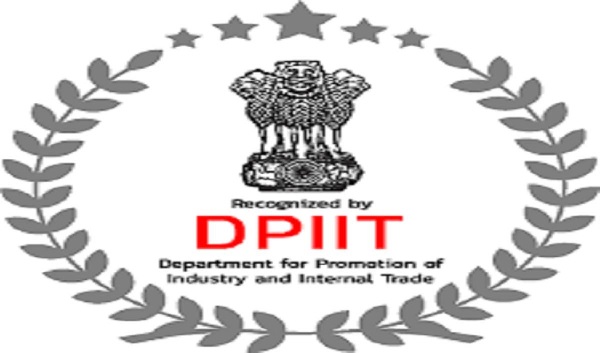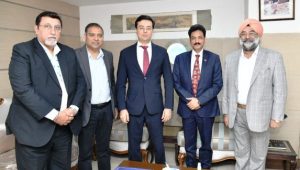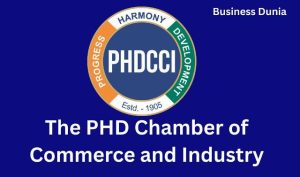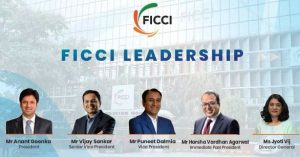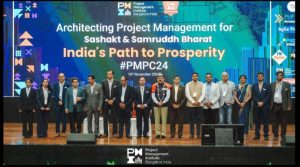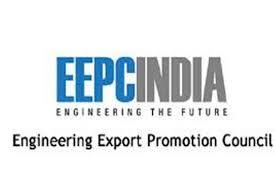NEW DELHI, : Mr Sanjiv, Joint Secretary, DPIIT, Government of India today said that it is an integral part of human civilization and is going to witness huge demand in future, especially from rural applications. He further emphasised on the domestic value addition for the copper products.
Addressing the session ‘Role of Copper Industry in Indian Economic Growth’, organized by FICCI, jointly with International Copper Association, Mr Sanjiv highlighted on the importance of securing supply of copper concentrate for which he outlined the initiatives taken by the Government of India, for increasing domestic mining as well as to acquire copper mines abroad, especially in Africa. He also stated that to be competitive globally, the prices of domestic manufacturers should be at par with the landed price of imports.
Stressing on the importance of copper in the Indian economy, Mr Sanjiv mentioned that there is a need to create an entire ecosystem taking all the stakeholders together as every segment is interdependent.
Mr SK Roongta, Mentor, FICCI Non-Ferrous Metals Committee said that the role of copper has become vital as India’s growth has picked up with recent urbanisation. He mentioned different industries like electrification, defence, renewable, etc. that require copper as the major element. However, there is very little integration of copper value chain in India as compared to other countries. “The need of the hour is to plan and prioritise copper integration right from mining ore to the production of copper products,” he added.
Mr Puneet Khurana, Deputy Chief Executive Officer, Sterlite Copper emphasised on the initiative of Atmanirbhar Bharat and the importance of attaining self-sufficiency in copper production to meet the forecasted demand, citing the example of self-sufficiency attained by Japan. He further recommended on securing the copper ore supply, collaboration among the government and industry for overseas mineral asset acquisition, removal of inverted duty structure, promotion of organised recycling of scrap and review of the FTAs, upcoming as well as entered into.
The panel comprising of representatives from the Government and the industry, discussed on the facilitating role of Mineral Security Partnership and the recent amendments in the MMDR Act for the Indian copper industry. The panel also discussed on the emerging applications for the copper industry like renewables other than the traditional users like electricals etc.
Mr Sanjeev Verma, Director, Ministry of Mines, Govt of India stressed on the importance of adopting the advanced technology to produce valued added copper products. He also talked about the number of mines available in India and how it will have a direct impact on the production of copper ore, supporting the industry growth plans.
Mr R Saravanabhavan, Deputy Adviser (Minerals), NITI Aayog appreciated the well thought decision of the government to classify copper as the critical mineral, considering that the industry is a high-risk volatility market business. He emphasized revisiting the FTAs so as to garner maximum advantage from them. He also said that there should be segregation between all the 30 critical minerals in terms of the policies formulated, SOP and growth path.
Mr Jayanta Ranasingh, Business Development & Policy Advocacy, Hindalco Birla Copper focused on the importance of raw material security. “By 2025, India will have enough capacity as per the copper rods are concerned, however, there’s still potential for India to learn from other countries”, he stated. Mr Singh added that copper has an increasing demand in emerging sectors like EV but there is also a concern regarding the scarcity issues in the future and its impact on industry and the economy.
Mr Mayur Karmarkar, Managing Director, International Copper Association said, “Globally, the two focus elements are substitution and modernization.” He added that with dematerialization, there has been an increase in the importance given to the new critical minerals and the aim should be to value add, meet the demand for electronic appliances, cellular production and other copper related products.
Mr Satnam Singh, Director – Energy & Commodities, CRISIL, Mr Vishal Rana, Scientific Officer, Bureau of Indian Standards, Mr Sudhir Agarwal, Promoter, GK Winding Wires and Mr D K Jain, Representative, Material Recycling Association of India also shared their perspective on the Indian copper industry.
